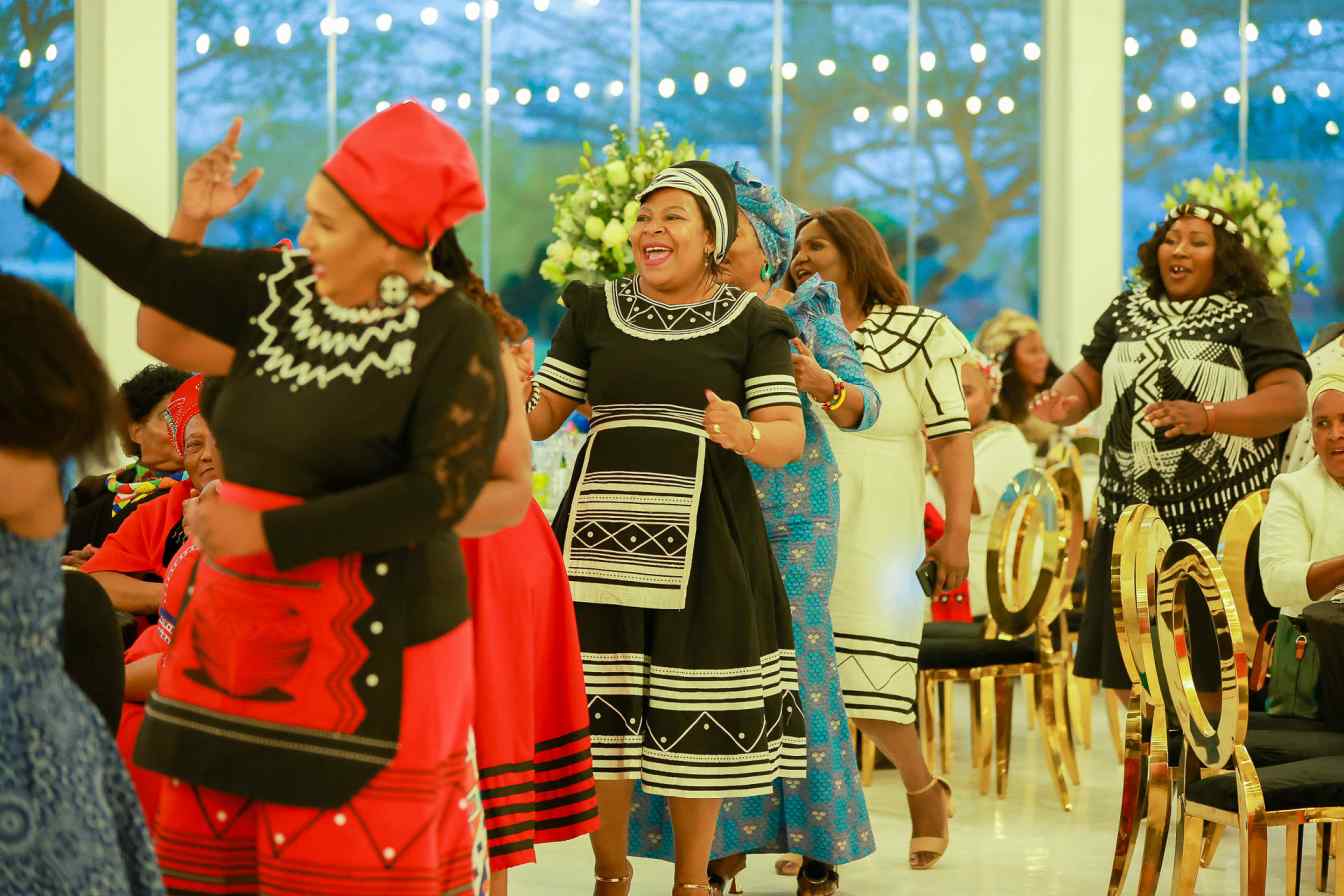Ladysmith – Amidst a day brimming with commemoration, information exchange, and profound discussions on traditional leadership to conclude Women’s Month, women in traditional leadership roles extend their gratitude to KwaZulu-Natal MEC for Cooperative Governance and Traditional Affairs, Bongiwe Sithole-Moloi, for facilitating a remarkable platform that addressed critical issues impacting them.
This event marked a unique opportunity for female Amakhosi, Ondlunkulu, and Omama Bezizwe to engage in open dialogue and information sharing among themselves, underscoring their invaluable contributions to their communities.
As a fitting conclusion to Women’s Month and the commencement of Heritage Month, MEC Sithole-Moloi dedicated an entire day to engaging with women in traditional leadership roles.
The occasion, which took place at Donga La Boutique in Ladysmith on Friday, was to establish a space wherein women in traditional leadership could candidly address their concerns and exchange best practices from their respective communities, away from the presence of their male counterparts. MEC Sithole-Moloi said In KwaZulu-Natal, where rich culture and history thrive, women have been pivotal in upholding traditional roles.
She stressed that they serve as cultural custodians, ensuring the preservation of heritage for future generations. Ondlunkulu partners with their husbands, the Amakhosi, to address various matters concerning women in their communities. They stand as pillars of support in villages, aiding families in times of distress.
The guests appreciated this platform immensely, as it fostered comprehensive discussions and allowed them to present plans aimed at uplifting their communities. They expressed a collective desire for support in skill development, the establishment of non-profit organisations, and the creation of cooperatives that could generate income to fund community projects. Many also showed keen interest in agriculture due to their access to land.
In response to the discussions, MEC Sithole-Moloi outlined the department’s commitment, through the directorate of traditional affairs, to provide Amakhosi with the necessary resources. She pledged to collaborate with other departments on projects targeting challenges faced by women in traditional leadership roles.
“We are thrilled to have engaged in these conversations and heard your concerns. However, our objective goes beyond that; we aspire to share success stories and witness women in traditional leadership roles making a profound impact. Collaborative governance is our cornerstone, and we are mandated to support traditional leadership. We will liaise with relevant departments to aid those interested in establishing NGOs and cooperatives. Attaining land-related matters is also crucial; women’s empowerment must include land rights.”
MEC Sithole-Moloi continued, “We’re dedicated to nurturing an educational culture among the offspring of traditional leaders. While these children are heirs to Amakhosi, we also aim to cultivate a well-rounded education that equips them to guide their communities effectively.”
Recognizing the immense responsibility shouldered by women in traditional leadership, she encouraged them to stand strong, emphasizing the government’s willingness to provide assistance. MEC Sithole-Moloi also aimed to dispel misconceptions regarding the significance of female leaders in traditional roles, emphasising their role as cultural custodians and educators of the next generation.
She concluded by urging Amakhosi, Ondlunkulu, and Omama Bezizwe to spearhead transformative changes in their communities by leveraging the available support and services from various government departments.
Ends

